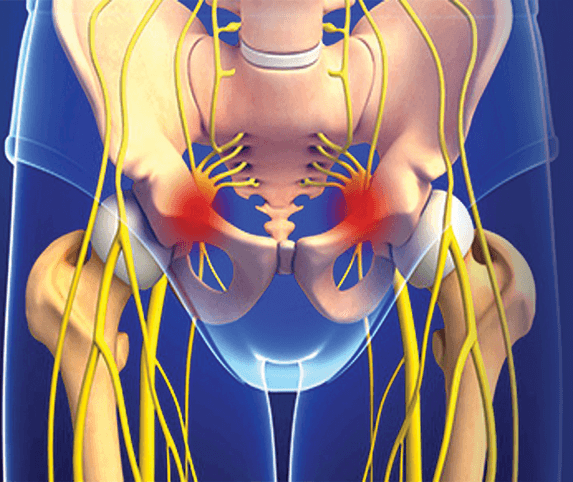Nerve Injuries and Sexual Health
Sexual Health Month is observed each September. This month aims to raise awareness of all aspects of sexual health, including both physical and emotional health. When it comes to sexual health, nerve injuries are not the first thing that comes to mind. However, here at The Institute for Advanced Reconstruction, our plastic and reconstructive surgeons treat patients with nerve conditions that may impact their sexual well-being.
Pudendal Neuralgia
Pudendal Neuralgia (PN) is a condition where a patient experiences intense pain in and around the pudendal nerve, which is located in the pelvic region. The pudendal nerve stems from the sacrum and runs through the pelvic area into the urethra, anus, rectum, perineum, and genitalia. PN is caused by the entrapment, compression, or dysfunction of the pudendal nerve. As it relates to sexual health, many patients with pudendal neuralgia experience pain following sexual activity, loss of sensation, uncomfortable spontaneous orgasm, difficulty achieving orgasm or pain after orgasm, and possible scrotum/testicular pain. Not only does PN have physical effects on sexual health and activity, but it can take an emotional toll as well. Many patients experience feelings of shame or embarrassment about their condition, which can also cause their intimate relationships to suffer.
Fortunately, there are solutions to treat this pain and resume a normal, healthy lifestyle. To treat this nerve pain, pudendal nerve decompression surgery is an option that is usually considered after more conservative therapies fail. These therapies include measures such as lifestyle changes, pelvic floor physical therapy, medications, and nerve blocks. Our physicians will determine if you are an appropriate candidate for surgery, assist you in understanding your options, and assess the best course of action.
Erectile Dysfunction
Erectile Dysfunction (ED) is a very common condition that many men live with daily and avoid seeking treatment. Living with erectile dysfunction typically does not cause pain but results in trouble maintaining an erection. ED is often a symptom of another underlying condition. Male sexual arousal is a complex process that involves the brain, hormones, emotions, nerves, muscles, and blood vessels. Erectile dysfunction can result from a problem with any of these and should be brought to a doctor’s attention as soon as possible.
Living with ED has an extreme impact on a patient’s mental health. Emotionally and mentally, it is something that may carry a level of embarrassment and insecurity. When it comes to treatment for ED, many men experience improvements when taking medications such as Viagra and Cialis. These medications improve blood flow to the penis and make developing an erection easier. Penile injections and penis pumps may also be used to achieve an erection in men with erectile dysfunction.
When pills and injections don’t work, a penile prosthesis may be considered. Implantation of a penile implant may require complex surgery and is irreversible. If the implant is removed, other treatments for ED will not be successful. Before proceeding with a penile prosthesis, our surgeons offer patients a minimally invasive nerve transfer procedure to restore erectile function permanently. The procedure that we offer at The Institute for Advanced Reconstruction addresses erectile dysfunction caused by nerve damage. We perform a genitofemoral to cavernous nerve transfer to restore erectile function. A “nerve transfer” is a standard surgical technique that utilizes a healthy, functioning nerve, connecting it to an unhealthy, injured nerve in order to restore the function of the injured nerve.
Chronic Testicular Pain
Chronic Testicular Pain (CPT), or orchialgia, is defined as intermittent or constant pain in the testicle or testicles, which lasts longer than three months and interferes significantly with the patient’s daily activities. Besides the physical discomfort patients living with chronic testicular pain face, they often battle negative emotional and psychological side effects as well. Our surgeons understand that this experience can be devastating and are here to provide hope to those with chronic testicular pain.
As far as treatment options for CPT, there are some conservative methods that exist. Initial treatment occurs via conservative management with the use of anti-inflammatory medications and antibiotics, followed by low-dose anxiolytics as well as neuromodulating drugs. A spermatic cord block can be used for both diagnostic and therapeutic purposes. This nerve block may provide patients with temporary pain relief, also indicating that surgery may be a potential long-term treatment option. The surgical treatment offered by the surgeons at The Institute for Advanced Reconstruction is microsurgical denervation of the spermatic cord. The spermatic cord is a bundle of vessels, nerves, and ducts that run to and from the testes. Within the spermatic cord, there are nerves that supply sensation to the testes. Microsurgical denervation of the spermatic cord involves a minimally invasive procedure where these nerves are surgically cut. By stopping the signals sent by these nerves from the testicles to the brain, we are able to prevent “pain signals” and alleviate chronic testicular pain.
To learn more about treatment for any of the aforementioned conditions, please explore our website or request an appointment for a consultation today!







